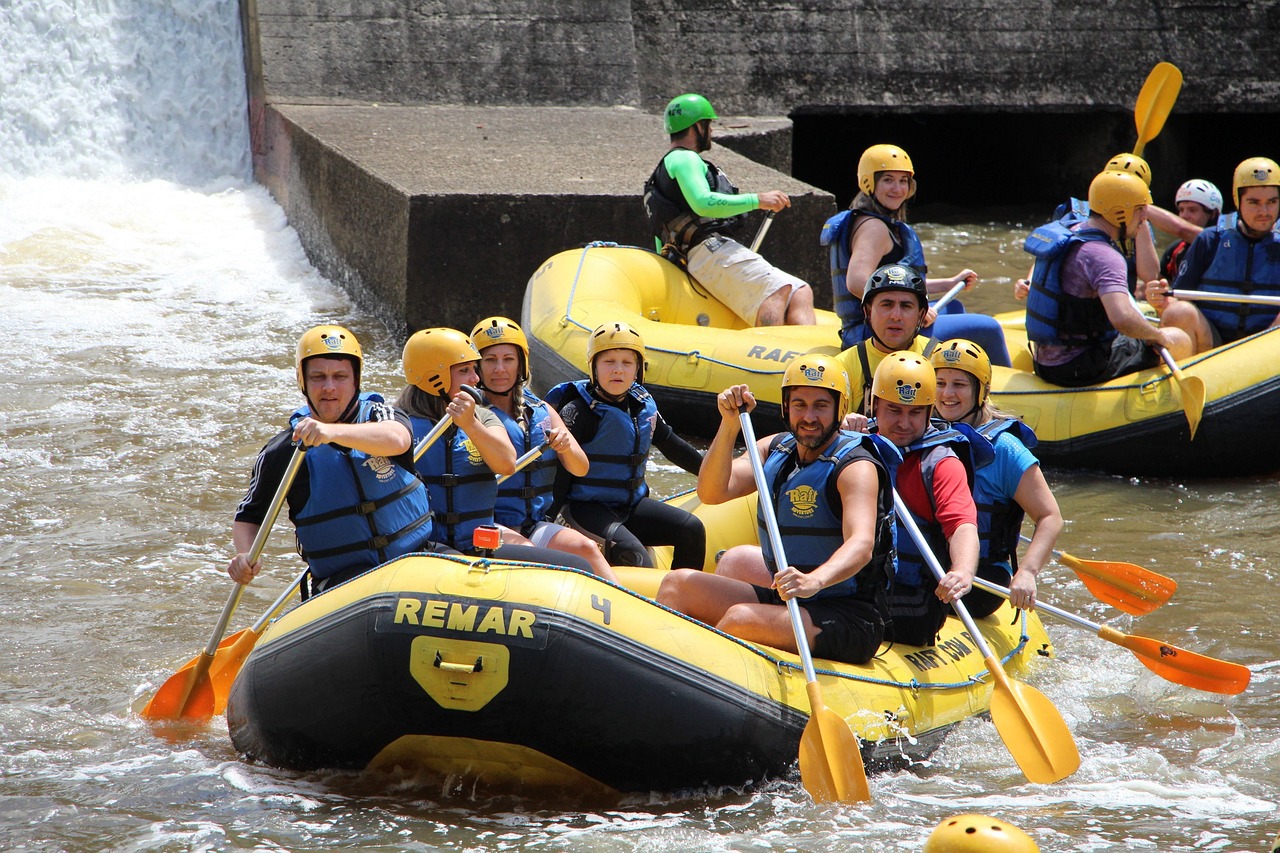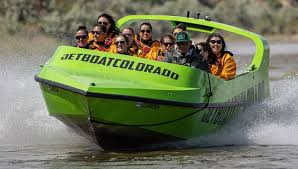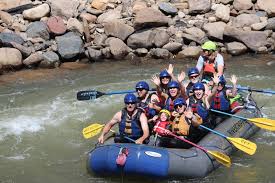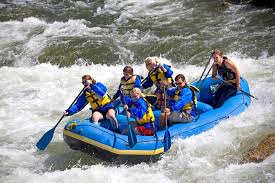Raft Company For Sale Colorado : 5 Unmissable Opportunities

Welcome to the exhilarating world of whitewater rafting in Colorado! ” Raft Company For Sale Colorado ” In this article, we delve into the dynamic realm of rafting businesses, specifically focusing on the sale of a raft company in the beautiful state of Colorado. Whether you’re a passionate entrepreneur looking for a new venture or an investor seeking an exciting opportunity, join us as we explore the key aspects of this unique industry, from market insights to the intricate process of selling a raft company. Discover the thrilling possibilities that come with acquiring or selling a rafting business in the heart of Colorado’s adventure tourism scene.
Introduction to Raft Company For Sale Colorado

The Thriving Rafting Industry in Colorado
Colorado stands as a mecca for outdoor enthusiasts, drawing adventurers from around the globe with its majestic landscapes and thrilling rapids. As part of this dynamic environment, the rafting industry has flourished, offering not just a recreational escape but a lucrative business opportunity.
Changing Tides in Adventure Tourism
The decision to sell a raft company in Colorado is influenced by a myriad of factors. Owners may be seeking new horizons, exploring different ventures, or even transitioning into retirement. Understanding the pulse of the adventure tourism market is crucial in navigating these waters.
What Makes Rafting Businesses Desirable
Rafting businesses present a unique blend of excitement, natural beauty, and entrepreneurial spirit. Aspiring owners are drawn to the prospect of running a business that not only caters to thrill-seekers but also capitalizes on Colorado’s reputation as a premier destination for outdoor activities.
Overview of Colorado Rafting Industry
The Pinnacle of Adventure Tourism
Colorado’s rafting industry has ascended to the pinnacle of adventure tourism, attracting adrenaline junkies and nature enthusiasts alike. The state’s diverse waterways, ranging from the roaring Arkansas River to the scenic Clear Creek, provide an unparalleled canvas for white-water excitement.
Market Dynamics and Trends
Understanding the market dynamics is essential for anyone venturing into or out of the rafting business. The demand for outdoor experiences, eco-tourism, and sustainable adventures has propelled Colorado’s rafting industry into a lucrative sector with year-round potential.
Competition and Differentiation
As the industry thrives, competition intensifies. Raft companies need to carve a distinctive niche to stand out. Factors such as the variety of rafting experiences offered, safety measures implemented, and environmental consciousness play a pivotal role in attracting customers and, subsequently, in valuing a business for sale.
Seasonal Considerations
The ebb and flow of Colorado’s seasons significantly impact rafting operations. Understanding the seasonality of the business is crucial for potential buyers, helping them gauge revenue fluctuations and plan strategic marketing and operational approaches.
Collaborations and Partnerships
Successful rafting companies often form strategic partnerships with local businesses, accommodations, and tourism boards. These collaborations not only enhance the overall experience for customers but also contribute to a robust network that can influence the success of a rafting business in Colorado.
Factors Influencing Sale Decision

Entrepreneurial Shifts and Personal Motivations
The decision to sell a raft company in Colorado is often influenced by a variety of entrepreneurial and personal factors. Owners may be seeking new challenges, pursuing alternative business ventures, or reaching retirement age. Understanding these motivations is crucial for both buyers and sellers in navigating the sale process.
Market Timing and Economic Trends
The timing of a raft company sale is intricately tied to broader economic trends and the specific dynamics of the adventure tourism industry. Owners may opt to sell during peak seasons, leveraging high demand and better valuation, or choose strategic times aligning with personal goals and market stability.
Operational Challenges and Burnout
Running a rafting business involves significant operational challenges, from managing equipment and guides to ensuring safety standards. Owners may decide to sell due to burnout or a desire to pass on the operational reins to a new, enthusiastic owner ready to inject fresh energy into the business.
Environmental and Regulatory Pressures
The rafting industry is not immune to environmental concerns and regulatory changes. Owners may decide to sell in response to evolving environmental standards or to navigate the complexities of changing regulations. Understanding these external pressures is pivotal for a smooth transition.
Family and Lifestyle Considerations
For family-owned businesses, considerations related to family dynamics and lifestyle preferences can drive the decision to sell. Balancing personal life with the demands of a rafting business can lead to strategic decisions about transitioning ownership.
Financial Goals and Valuation
Ultimately, the financial aspect is a driving force in the decision to sell. Owners may have specific financial goals, and understanding the valuation of the rafting business is fundamental to achieving these objectives. Factors such as revenue, profit margins, and potential for growth all play into the valuation equation.
Valuation of Rafting Business
Understanding Business Valuation Basics
Valuating a rafting business is a critical step in the sale process, providing a foundation for negotiations and setting realistic expectations for both buyers and sellers. Key factors influencing the valuation include annual revenue, profit margins, asset value, and growth potential.
Financial Metrics and Performance Analysis
Prospective buyers assess a rafting company’s financial health by examining key metrics such as gross revenue, net profit, and cash flow. Historical performance data, when analyzed in conjunction with industry benchmarks, offers insights into the business’s stability and growth trajectory.
Asset Valuation: Equipment and Infrastructure
The tangible assets of a rafting business, including boats, safety gear, and infrastructure, contribute significantly to its overall value. Properly maintained and up-to-date equipment enhances a company’s appeal, while depreciation and wear-and-tear considerations impact the valuation.
Customer Base and Brand Equity
The strength of a rafting business’s customer base and brand equity are intangible yet influential valuation factors. A loyal customer following, positive reviews, and a reputable brand contribute to the business’s perceived value in the eyes of potential buyers.
Growth Potential and Market Opportunities
A forward-looking approach is crucial in valuating a rafting business. Assessing its growth potential, exploring untapped markets, and identifying opportunities for expansion contribute to a more comprehensive valuation. Buyers are often willing to pay a premium for businesses with promising future prospects.
Professional Business Appraisal
Engaging a professional business appraiser with experience in the adventure tourism industry is a prudent step. These experts use a combination of financial analysis, market trends, and industry knowledge to provide a fair and accurate valuation, ensuring a smooth and transparent sale process.
Marketing and Advertising Strategies for Raft Company For Sale Colorado
Crafting a Compelling Sales Pitch
Effectively marketing a raft company for sale in Colorado involves crafting a compelling sales pitch that highlights the unique aspects and appeal of the business. This pitch becomes the foundation for all marketing efforts, conveying the value proposition to potential buyers.
Utilizing Online Platforms and Listings
In the digital age, online platforms and business-for-sale listings play a pivotal role in reaching a broad audience of potential buyers. Leveraging specialized websites, social media, and industry forums helps increase visibility and attract individuals actively seeking opportunities in the adventure tourism sector.
Showcasing Customer Testimonials and Reviews
Positive customer testimonials and reviews are powerful tools in marketing a rafting business. Highlighting satisfied customers’ experiences not only builds credibility but also serves as social proof, instilling confidence in potential buyers about the business’s reputation and service quality.
Collaborative Marketing with Local Businesses
Forming partnerships with local businesses, such as hotels, restaurants, and outdoor gear stores, can enhance marketing efforts. Cross-promotions and joint marketing initiatives create a mutually beneficial network, expanding the reach of the business sale to a broader audience.
Emphasizing Sustainable and Eco-Friendly Practices
Incorporating sustainability and eco-friendly practices into the marketing strategy aligns with the growing trend of environmentally conscious consumers. Emphasizing a rafting business’s commitment to preserving natural resources can be a compelling selling point for environmentally-minded buyers.
Engaging with the Rafting Community
Active participation in the local and broader rafting community is a strategic marketing approach. Involvement in industry events, sponsorships, and collaboration with rafting associations not only increases visibility but also positions the business as an integral part of the rafting ecosystem.
Legal and Regulatory Considerations

Understanding Regulatory Landscape
Navigating the legal and regulatory landscape is imperative when selling a rafting business in Colorado. Familiarity with federal, state, and local regulations pertaining to adventure tourism is essential to ensure a smooth and compliant transition of ownership.
Permits and Licensing
Rafting businesses require various permits and licenses to operate legally. During the sale process, it’s crucial to transfer these permits seamlessly to the new owner. Ensuring that all necessary licenses are up-to-date and compliant with regulatory standards is a key aspect of the legal considerations.
Liability and Risk Management
Adventure sports inherently involve risks, and mitigating liability is a paramount concern. Sellers must clearly outline the risk management practices in place, including safety protocols, insurance coverage, and waivers. Understanding the legal implications and liabilities associated with rafting operations is essential for both parties involved in the sale.
Employment Contracts and Staff Transition
If the rafting business has a team of guides and staff, addressing employment contracts and staff transition is part of the legal considerations. Clear communication with employees about the change in ownership, any alterations to employment terms, and adherence to labor laws are crucial to avoid legal complications.
Lease Agreements and Property Issues
For businesses operating on leased properties or utilizing specific launch and landing sites, reviewing lease agreements and addressing any property-related issues is essential. Ensuring a smooth transition with landlords and resolving property-related legal matters contributes to a seamless sale process.
Disclosure of Material Information
Transparency is key in any business transaction. Sellers are obligated to disclose material information about the rafting business, including any ongoing legal matters, customer complaints, or environmental issues. Failure to disclose such information can lead to legal repercussions and jeopardize the sale.
Seeking Legal Counsel
Engaging legal counsel specializing in business transactions within the adventure tourism industry is a prudent step. An experienced attorney can guide both the seller and buyer through the intricacies of the sale process, ensuring compliance with all legal requirements and protecting the interests of both parties.
Raft Company For Sale Colorado Conclusion
In conclusion, “Raft Company For Sale Colorado” unveils the multifaceted journey of selling or acquiring a rafting business in the heart of this adventure-rich state.
From understanding the thriving Colorado rafting industry and the factors influencing the decision to sell, to delving into the intricacies of valuation, marketing strategies, and navigating legal considerations, this comprehensive guide provides a roadmap for both sellers and potential buyers.
As we navigate the turbulent waters of operational challenges, negotiation tactics, and future prospects, we invite entrepreneurs, investors, and enthusiasts to embark on this exciting expedition.
Whether you seek the thrill of ownership or the satisfaction of a successful sale, may this guide serve as a valuable compass in the exhilarating world of Colorado’s rafting business landscape.



Leave a Reply
You must be logged in to post a comment.